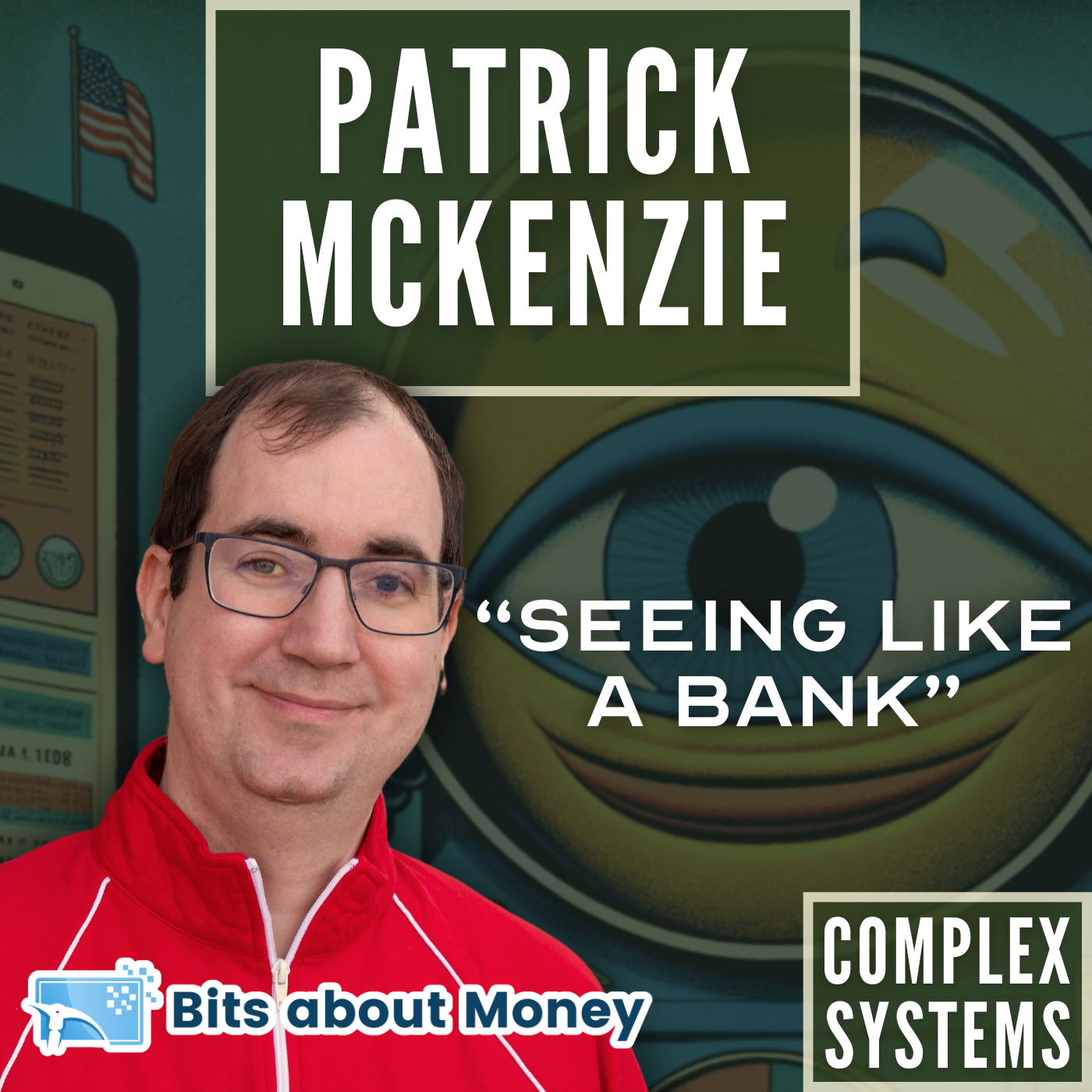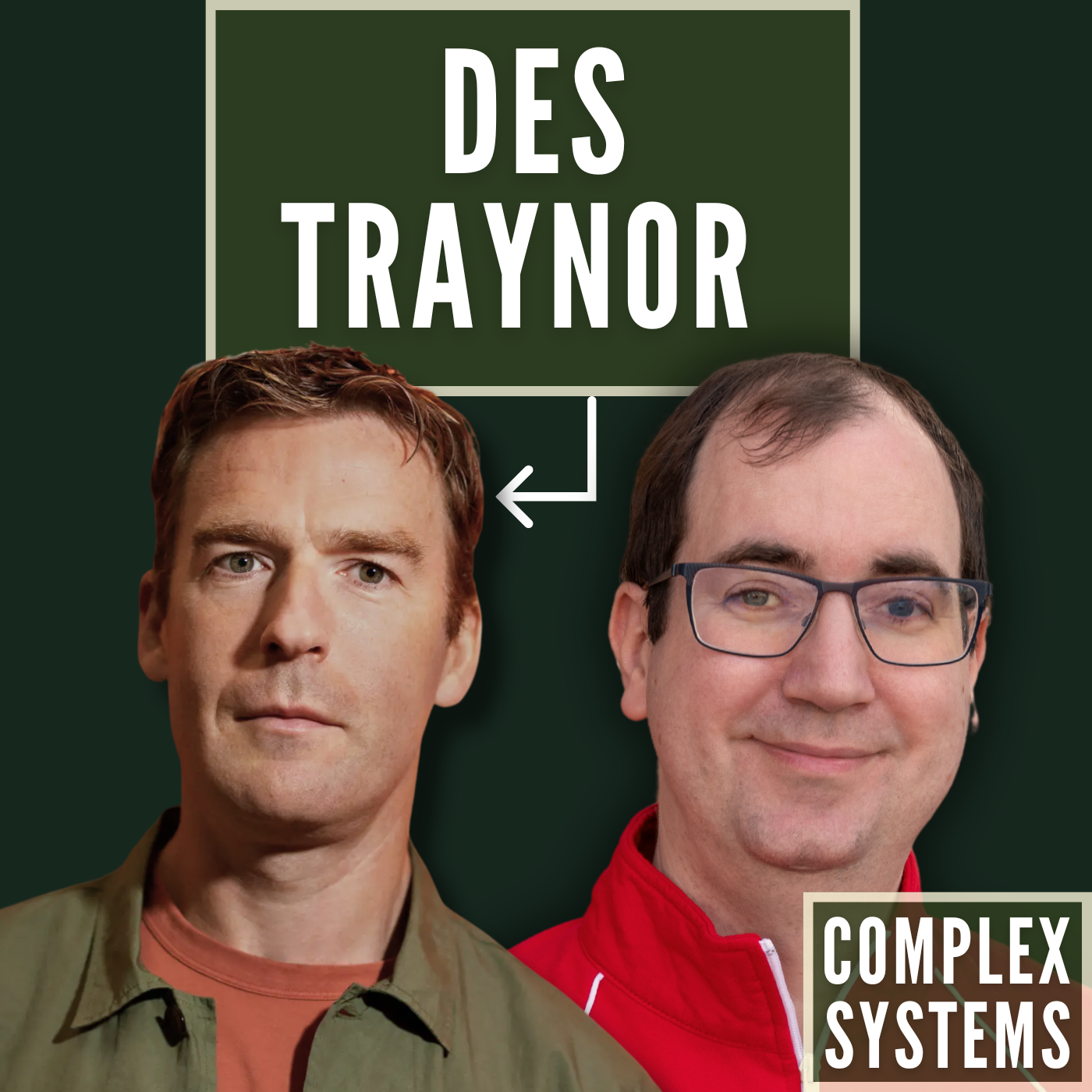How banks actually work (and don't work)

I'm back from vacation in Japan this week (you may have noticed from discussions about the Japanese software industry with James Riney and Jim Weisser), and in something of a banking state of mind. This week I wrote an essay for Bits about Money covering Open Banking and payments competition, and thought I'd also release an episode where I peel back the covers a bit on how legibility within the system (and illegibility outside) causes some of the frictions people associate with banking.
I have a very particular set of skills, skills I learned over a very long career, skills which ... OK, Taken would be less of a thriller if it were about banking. On a more serious note, part of this bit of Dangerous Professionalism comes from a stint as an unpaid advocate for people with debt or banking-related issues, and part comes from my years working at Stripe. (Stripe is not a bank, but works closely with them. They do not necessarily endorse what I say in my personal spaces.)
Sponsor: Safebase
Ready to save time and close deals faster? Inbound security reviews shouldn’t slow down your team or your sales cycle. Leading companies use SafeBase to eliminate up to 98% of inbound security questionnaires, automate workflows, and accelerate pipeline. Go to safebase.io/podcast
[Patrick notes: Complex Systems now produces occasional video episodes! You can access them directly on YouTube: www.youtube.com/@patio11podcast. My kids inform me that I’m supposed to tell you to like and subscribe.]
Timestamps
(00:00) Intro
(03:52) Recordkeeping systems
(10:02) Sponsor: Safebase
(11:55) Human accountability and its malcontents
(23:02) Two embedded surprises about bank staffing
(27:51) Society has goals which conflict with banks being good at banking
(30:57) So what can be done about this?
Transcript
Today's episode is yours truly reading Seeing like a Bank, an essay I originally wrote for Bits about Money, where I write about once a month about financial technology. As always for this format of episode, I had some ad libbed remarks, which were:
Hi everybody. My name is Patrick McKenzie, better known as patio11 on the Internet. I enjoyed my vacation to Japan this summer and am now back in Chicago in the studio, recording a solo episode. Earlier today I was writing an essay which will be released later this August about one of my favorite topics, which is a particular selection of banks and a policy-adjacent topic that they have—policy meaning of and relating to politics and regulation—which directly touches on the availability of novel financial products, particularly payment products.
[Patrick notes: That essay is now live: Open Banking and payments competition.]
I've had a long and somewhat elliptical career around the banking system, including being a consumer advocate back in the day, in an unpaid capacity. Then I worked at Stripe for a while, which is not in the banking system, but is quite tied to it, as it were. Mandatory disclaimer here: Stripe does not necessarily endorse anything that I say in my personal spaces.
Often people come to me and ask, "Patrick, why are banks doing this thing that seems obviously irrational to me?" Sometimes the thing the bank is doing is just strictly irrational. All human institutions are made up of individuals. Sometimes those individuals make mistakes. Sometimes the individuals in how they do institutional design, in a way that generates just disastrous outcomes.
But a lens that I find more useful for thinking about the particular sort of policy and management failures that one sees among banks is the lens of legibility, which I was introduced to, like many people were, by the book Seeing like a State. It talks about legibility in the context of the administrative state and how high modernism, as it puts it, generates some of the dysfunction that we see from governments, both currently around the world and also historically.
[Patrick notes: The best modern update on Seeing like a State is Dan Davies’ (past guest of the podcast) Unaccountability Machine.]
I extended this idea in an essay a few years ago into "Seeing like a Bank." I'm going to read that essay out loud and give some live commentary, which might—it's not a callback, it might be a call forward to some of the things that will be said in the later essay this month about specific bank operations. So without further ado, "Seeing like a Bank," originally published in Bits about Money on November 7th, 2023.
[Patrick notes: In the interests of not copying the entire essay into this transcript, I’ve isolated just the new bits.]
[Patrick notes: As I’m listening to the introduction, discussing a particular bit of New York Times’ reporting on customers complaining about bank accounts being closed from late 2023, I was put in the mind of the debanking discourse of late 2024, which I covered in Bits about Money and with Erik Torenberg on this podcast. Many of the themes rhyme, much as they rhymed with the experience of the (I apologize for the cliche, but it’s both literally accurate and a roughly representative character sketch) Kansan grandmothers who I helped out back in my advocacy days.]
[Patrick notes: After discussing that banks are very good at tracking truth in ledgers, but not necessarily other systems:]
As an aside, they have their issues with ledgers too, but we'll take it as written that most bank ledgers are mostly accurate most of the time because the world hasn't collapsed in a fireball yet.
[Patrick notes: After explaining how boundaries between systems cause issues, I said:]
As an aside, when we talk about systems having different views of reality, those systems often execute what's called "business logic." And the results of that logic are reported to other systems, but the specific logic that the systems ran and how it impacted a particular case, a particular transaction, et cetera, is not shared with the system. One hopes that they execute it correctly because you suddenly have the "copy of a copy isn't as good as the original" problem, where it becomes increasingly unclear even to the system of record what actual decisions were made to get the input data into the current state that is recorded in the bank's records. This extends to other firms relying on the bank's records to make their own decisions.
Sometimes investigating these issues feels like a bit of doing archaeology and a bit of doing, maybe less archaeology and more, like... What's the branch of science that is finding dinosaur bones? Like you're trying to uncover layers of sediment that are on top of the topic of interest to you? Paleontology. That's it. You'd think that with an eight year old at home I’d know that off the top of my head.
[Patrick notes: To my own mild surprise a minute later, I had used the sedimentary layers metaphor again in the original essay.]
[Patrick notes: My spoken description of the following chart, about banking consolidation:]
I link here to a chart which shows the lineage of the largest banks in the United States. It shows 50 institutions [Patrick notes: 37 if I’m being more careful] consolidating into four, over a two decade period.
[Patrick notes: After discussing Chase’s acquisition of First Republic following the early 2023 banking crisis, and how it was actually a technical marvel that they were capable of publishing the following banner in their app, I noted:]
That one year timeline I forecast , when this essay was published in late 2023, turned out to be approximately factually accurate. Point for me. [Patrick notes: And point to the folks at Chase / First Republic who had communicated with me about it, mostly in my capacity as “a valued customer we don’t want adversely impacted by the merger.”]
[Patrick notes: In discussing that Tier Two customer support frequently has a button to award money ad hoc to a customer, I noted:
As an aside, I recently learned that there's a French phrase called—I'm afraid I can't pronounce French well, but the English translation [Patrick notes: of geste commercial] is a "commercial gesture" for what my shop called “accommodations.” I love that phrase. You and the bank have had a long and happy relationship with each other. There's a bit of a fly in the ointment in how something was handled. And the bank extends you some money as a commercial gesture to purchase your goodwill going forward and continue keeping your business.
[Patrick notes: Banks are sometimes pedantic in saying, when they extend one of these, that they have no obligation to do it. This includes when they very much do have an obligation to do it, in my direct and observed experience.
For example, I was once told that “as a courtesy” a bank would continue honoring a rate discount that I had on a loan. As a courtesy, I decided not to sue them for breach of contract.
Relevantly to this essay: that communication was with many thousands of customers with loans, each with different contracts (and sometimes bespoke language in them), and the people at the bank writing the templated communication didn’t read and weren’t aware of the entire universe of contracts, for Seeing like a Bank reasons. It is very possible that for some similarly situated customers, they had not contractualized a previous rate concession, and it was just an informal handshake or something they had the ability to alter at will. But IIRC for my loan it very much was a contractual obligation. (They continue to honor it. Limited props.)]
[Patrick notes: After explaining Tier Three's role, I said:]
As an aside, a lot of my work as an advocate for customers with banking issues and cosplaying as a Dangerous Professional, generally, is trying to pierce through the attention of "the system" to professionals with decision-making authority. This was to bring that decision-making authority to bear on behalf of the bank and to the benefit of the customer that was having a less than wonderful experience.
[Patrick notes: After explaining how procedures can fail without institutional awareness, I said:]
As an aside, sometimes people ask me, "How can that possibly be the case that a bank could have a procedure which fails frequently and be unaware of the fact that that procedure fails?" And the answer is that the bank has tens of thousands of procedures and there's no one whose job it is to really sweat the details on Procedure 9,376 specifically, where it probably doesn't even have an authoritative number, because no one has a list of the procedures that comprise the bank.
The bank is comprised of procedures, and the only complete description of those procedures is the bank itself.
There could be something which is an important operational detail for, say, mortgage servicing, which people generally ambiently expect happens somewhere, but which no person wakes up on Monday and thinks, "Okay, it is important to me that 100% of our requests for this particular edge case gets serviced today, or I'm out of a job if my manager finds out that that didn't happen."
[Patrick notes: After discussing the deskilling of bank branches, I said:]
There is some excellent academic work about this, which I’ll link in the show notes.
[Patrick notes: It hit different bank branches at different rates. This was well-underway in the UK slightly before it was common in the U.S., and is now hitting Japan, for what it is worth. As you might imagine, it isn’t for identical causes everywhere, but they rhyme: increasing regulation, increasing IT automation to achieve consistency and reduce costs, and the further progress of The Sort, where people with abilities similar to personal bankers in 1970 now work in a much better compensated outpost of tech or finance, and people who in 1970 might have sold shoes now sell credit cards.]
[Patrick notes: After explaining the cost differential between support tiers, I said:]
A note that 100X cost differential is not an exaggeration. In places where I'm aware of the actual numbers, those are (sometimes) the actual numbers.
[Patrick notes: Ever spent $40,000 of staff time on a single ticket from a single customer? I definitely have. And I’d do it again in a heartbeat and be right to, both from the perspective of “it is righteous and just that we keep our promises here, even if performance requires extraordinary effort” and “we will certainly realize far more than $40,000 in losses if we do not correct this issue quickly.”]
[Patrick notes: After discussing SARs and compliance, I said:]
As I've mentioned on Complex Systems before, I think the kerfuffle about debanking, which happened subsequently to the publishing of this original essay, had something to it. I think crypto advocates were right with regards to parts of their critique. They were also overstating other parts of their critique for advantage. But you can read those essays for more detail on that.
[Patrick notes: At the end of the episode, I said:]
And as a preview of coming attractions, relatively obscure parts of the administrative state and regulations that no one thought were really relevant to their interests have recently come suddenly to public attention. We'll return to that later in August.
So thanks for listening to this week of Complex Systems, and we'll be back next week.

